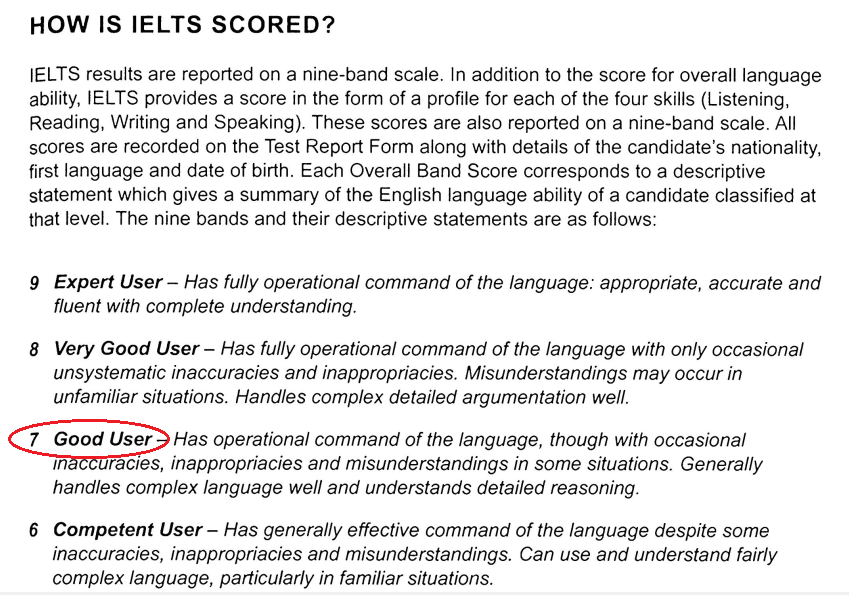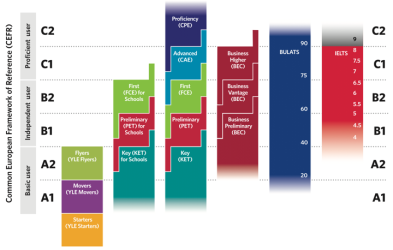For someone who wants to achieve a particular band score, say 7, it is vital to know what their English level actually is. Determining English level requires a thorough assessment test. It is not enough to know that you are a B2 leaner.
In case you are not familiar with English levels based on CEFR, read this article:
What is CEFR skill?
Two learners of the same CEFR level can end up with different scores on the test. Therefore, the level of learners should be determined carefully, and it is better to be according to the four skills being tested by IELTS. The Speaking level of a B2 student might equal band 6.5, and for another student of the same level could be 6 or even 5.5.
We have to know what is actual level is so that we can know how much effort and time we need to achieve a particular band score. For a strong B2 level student, the time required for attaining overall band 7 could be about a year, but for a weak B2 learner, this time could be twice as much or even longer. All IELTS teachers should be honest with their students and tell them what their level is and how much it would take to prepare for the test. Indeed, this is only a guess and can be influenced by many different factors, including the learner’s determination, intelligence, time to practice, the extent of their exposure to English, and their teacher’s competency.










